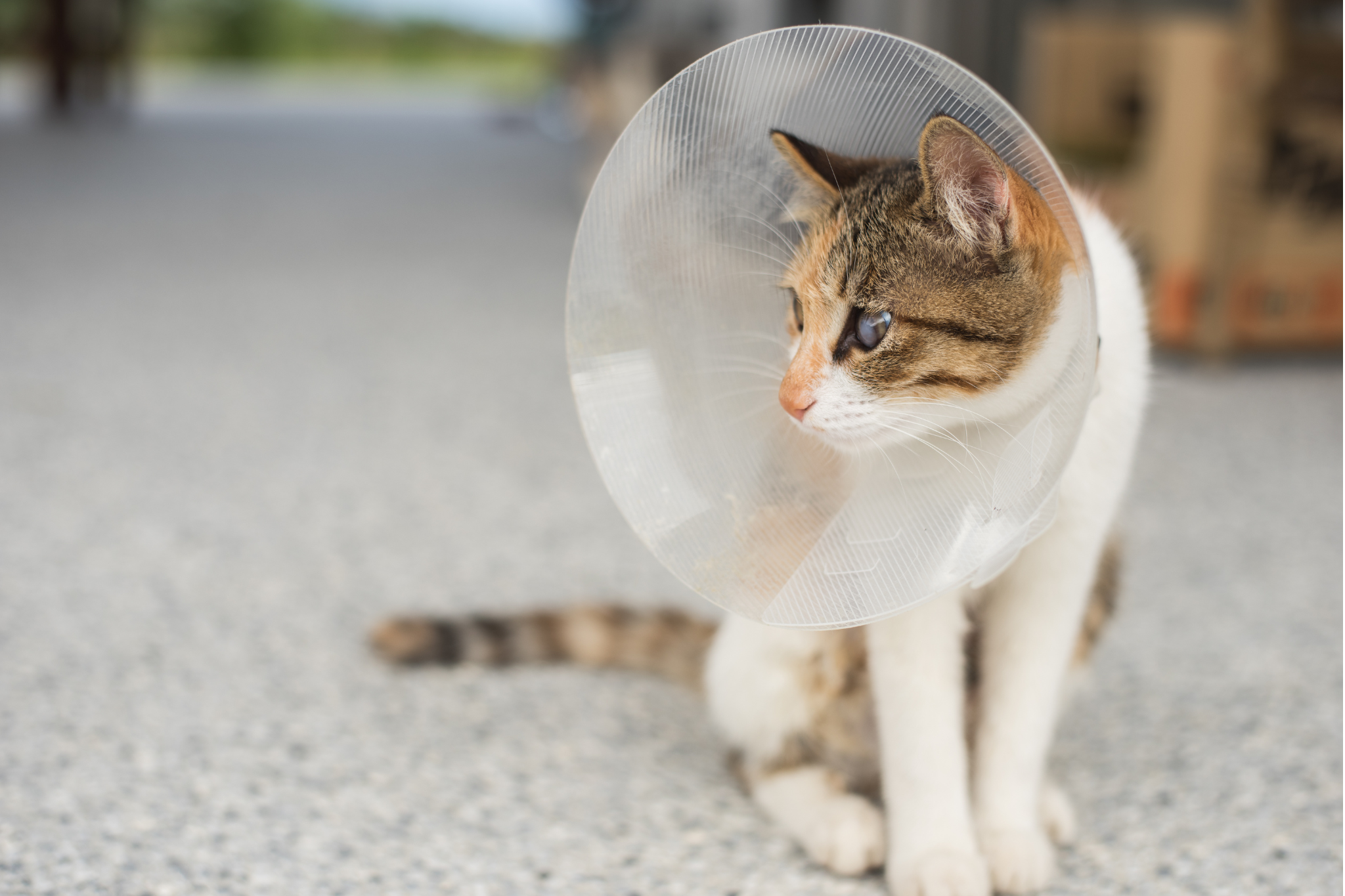
Spay & Neuter
Every year thousands of stray and unwanted animals are euthanized in shelters across the United States. Many of these deaths are the avoidable result of owners failing to spay and neuter their pets. Even if you keep a close watch on your pet, accidents happen, and unexpected offspring means more animals that won’t be given the chance at full, happy lives.
Spaying and neutering can help end this cycle, and both procedures can have health benefits for pets.
Spaying
Spaying is a common surgical procedure performed on female cats and dogs. The process is called an ovariohysterectomy and involves removing the patient’s uterus, ovaries, and fallopian tubes, rendering the animal incapable of reproduction. North Pole Veterinary Hospital veterinarians recommend spaying your pet at 6-12 months. If a puppy has an inverted vulva (vulva is tucked in) we may recommend that the puppy go through a heat cycle before we spay. Your veterinarian will talk with you about the best time for your pet to be spayed depending on their breed, temperament and lifestyle.
Benefits:
- Prevents unwanted pregnancies
- Eliminates the risk of ovarian and uterine tumors
- Remove the possibility of uterine infections
Prior to Surgery
We require an up-to-date wellness exam (within past 12 months), certain vaccinations, and pre-anesthetic bloodwork prior to a spay surgery. This helps us determine and potentially mitigate risk factors associated with your pet and anesthesia.
What to expect after surgery
Spaying is a major surgery requiring 10-14 days of recovery time. Recovery may also include pain medication and lethargy is common for the first couple of days following the procedure.
Neutering
Neutering is performed on male cats and dogs. This process castrates the animal, removing their testicles and making them unable to impregnate females. We recommend neutering any time after 6 months of age but a neuter can be performed any time after the age of 16 weeks. Your veterinarian will talk to you about the best time for your pet to be neutered depending on their breed, temperament and lifestyle.
Benefits
- Placates the animal, reducing aggressive behavior and decreasing dominant tendencies
- Reduces roaming and spraying (territory marking)
- Eliminates the risk of testicular and prostate tumors
Prior to Surgery
We require an up-to-date wellness exam (within past 12 months), certain vaccinations, and pre-anesthetic bloodwork prior to a neuter surgery. This helps us determine and potentially mitigate risk factors associated with your pet and anesthesia.
What to expect after surgery
Although less invasive than spaying, neutering is still a major medical procedure that requires some recovery time. Recovery may also include pain medication and lethargy is common for the first couple of days following the procedure. It’s extremely important that you monitor your pet to prevent the animal from licking or biting the incision to reduce the risk of infection.
Additional Information & Resources
For more information on what happens on a surgery day, please visit our Surgery page.
Learn more about Keeping Your Pet Happy And Healthy by Dr. Becky Lundgren DVM, Veterinary Partners.
To schedule an appointment, contact us at (907) 488-2335 or Make an Appointment online.
Explore Our Complete List of Veterinary Services in North Pole, AK
- Pharmacy
- Reproduction
- Puppy and Kitten Packages
- OFA/PennHIP Certifications
- End of Life Support and Euthanasia
- Vaccinations
- Parasite Prevention
- Dermatology
- Wellness Exams
- Ophthalmology
- Dentistry
- Nutritional Counseling
- Surgery/Anesthesia
- Laboratory Testing
- Diagnostic Imaging
- Microchipping
- Health Certificates
